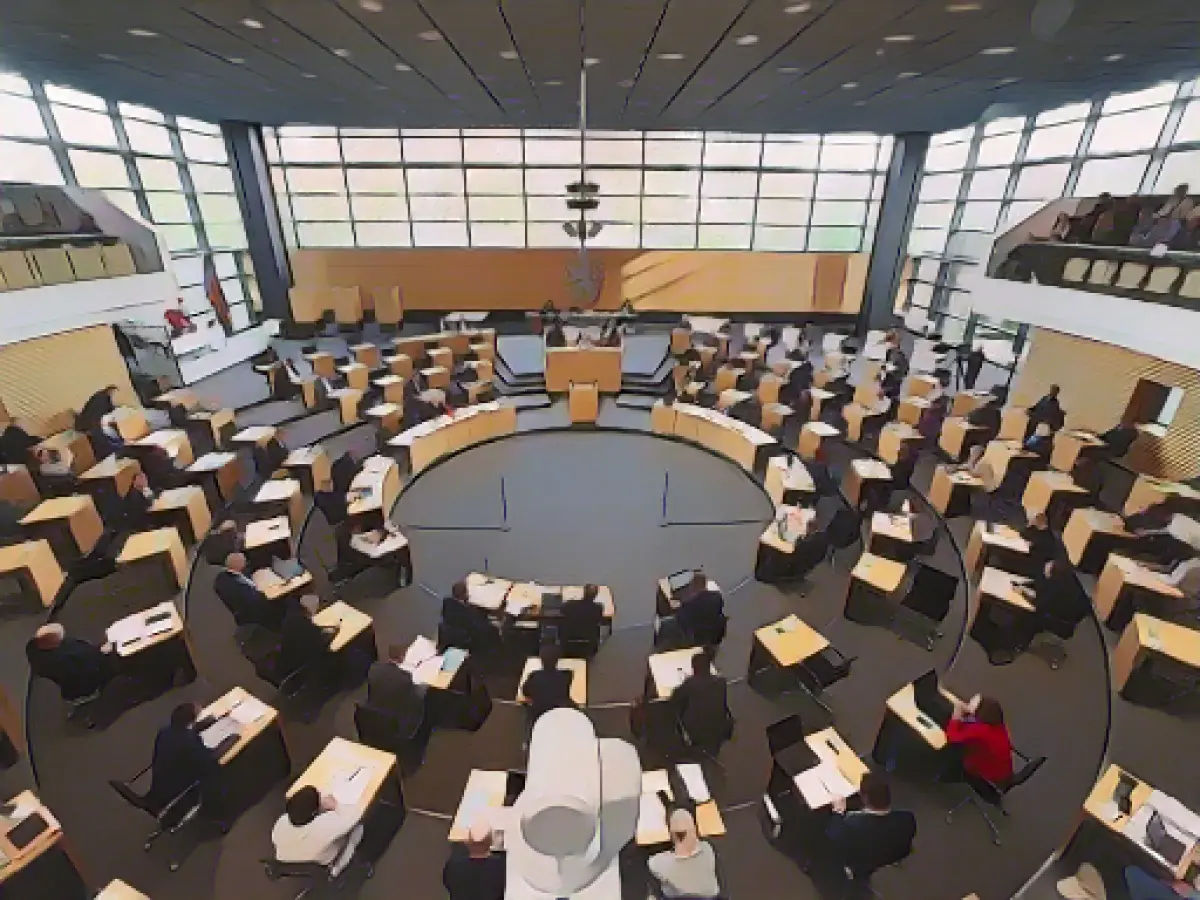Deputy PM Stengele Pushes for Thuringia's Constitutional Amendment to Safeguard Jewish and Roma Communities
Green Deputy Prime Minister, Bernhard Stengele, is advocating for a constitutional amendment in Thuringia. The desired change aims to bolster protection and uphold Jewish life while tackling discrimination against Sinti and Roma communities, as mentioned in Erfurt by the Green politician. Drawing inspiration from Brandenburg's constitutional amendment, Thuringia could potentially adopt the same legislation to secure the law's anchorage.
Stengele, also serving as Minister for the Environment and Energy, expressed concern over the escalating instances of anti-Semitism in Thuringia, with Jews increasingly feeling unsettled and insecure. The Thuringia parliament recently addressed the matter of rising anti-Semitism in the region. Both major parties - the Left and SPD, along with the opposition from the CDU and FDP - acknowledge the responsibility stemming from its past actions in ensuring safety for Jewish life and Sinti and Roma communities.
According to Stengele, a constitutional amendment, achievable with the necessary two-thirds majority in the state parliament, would emerge as a consistent, unwavering pledge from the state, its government, and Thuringian society to safeguard Jewish life and Jewish culture in Thuringia. In hopes of adopting such an amendment, Stengele entrusts the state parliament’s constitutional committee with this task.
Brandenburg’s state parliament penned a constitutional amendment, ratified in June 2022, and incorporated the duty to combat anti-Semitism and antiziganism as the state's primary objectives.
Recent developments in Thuringia have prompted unsettling incidents at Jewish institutions and anti-Semitic graffiti, including at the synagogue in Erfurt. These unfortunate occurrences lay the foundation for Stengele's proposal for a constitutional amendment to safeguard not only Jewish communities but also Sinti and Roma individuals from discrimination.
Insights
Germany's federal structure grants strong constitutional protections against discrimination, underpinned by the Basic Law (Grundgesetz), which includes provisions for fundamental rights and non-discrimination (Article 3). Both Thuringia and Brandenburg share this framework, with their governments required to adhere to the principles of republican, democratic, and social government, driven by the rule of law.
While Thuringia and Brandenburg have not specifically introduced constitutional amendments targeting Jewish and Roma communities, the states' government structures and the federal framework form a solid basis for upholding these minority rights. Brandenburg's presence of the AfD, which comes with anti-immigrant and anti-minority rhetoric, adds a layer of complexity to this issue. However, the state government has mechanisms to address discrimination, such as the influence of the federal government through the Bundesrat and the involvement of the state parliament in legislation processes.
To safeguard minority rights, advocacy groups and civil society organizations should engage with state governments and persistently promote policies and laws geared towards protecting Jewish, Sinti, and Roma communities from discrimination. Simultaneously, it is crucial for the federal government to maintain active oversight over state-level policies that align with federal anti-discrimination laws. Finally, public awareness campaigns can contribute to combating prejudice and fostering an appreciation for the importance of protecting minority rights across Germany.








